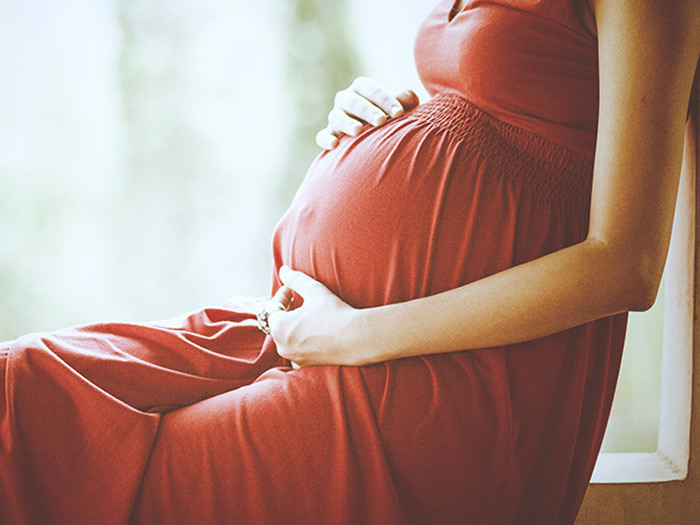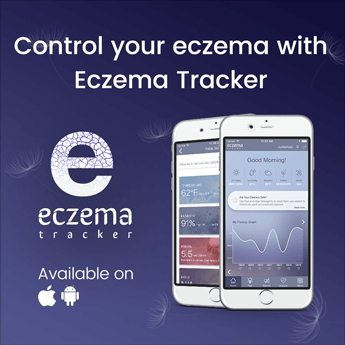Are you planning a baby or are on the journey of becoming new parents? You should be a responsible husband seeking knowledge to help your wife maintaining a safe & healthy pregnancy?
If all the answers to the above questions are ‘yes’ then this blog is just for you!
Bringing a new life into this world is one of a kind feeling! It’s all together genuine to be on an emotional roller coaster with fear, agony and excitement simultaneously. It’s also obvious to be frequently exposed to new symptoms and ailment during this crucial journey. One such pregnancy caused illness is known as Eczema. It is also known as ‘Atopic Eruption of Pregnancy (AEP)’, this condition occurs during pregnancy in a woman’s body even if she never had any previous history of the same. As per the study approximately 50% of the women who had Eczema before experienced relapse and further deterioration during pregnancy.
So, if you or your spouse is pregnant, there is a high chance she may suffer from this condition. Let’s dive in learn about it in details to avoid any severe consequences.
Eczema during Pregnancy
During pregnancy, a woman’s body experiences numerous hormonal changes that may affect her mentally, emotionally and physically. Stress during pregnancy expands the tyke creating skin inflammation, called eczema, at an opportune time in life. Each pregnancy is distinctive and the way the immune system reacts to pregnancy shifts from an individual to an individual. The rashes can be seen on the belly and may be extended down to the thigh region, around the bummies and also upwards to the breasts. Any changes felt in the body during pregnancy must be discussed with your doctor maybe it’s a mild irritation to your skin or an eczema flare up.
What Causes Eczema During Pregnancy?
The exact cause of eczema is still not known, but environmental and genetic factors are thought to play an important role.
Why Eczema Flare up During Pregnancy?
A probable reason is thought to be the immune cells that can be involved in eczema flare-ups. During pregnancy, the immune system shifts to favor a few types of immune cells and these changes might trigger those conditions that let eczema develop. There might be a skin barrier change or a shift in the skin protein process that may happen while you are pregnant can also be a cause for eczema.
The skin conditions that can occur during pregnancy include:
- Rashes called PUPPS
- Itchy skin bumps
- Redness in arms, legs, and abdomen
- Swelling
Out of all these skin conditions during pregnancy, eczema is the most common one.
How is Eczema Diagnosed During Pregnancy?
Eczema can be diagnosed easily by looking at your skin. A biopsy test may be performed to confirm the diagnosis.
It’s important to discuss the changes you notice during your pregnancy with your doctor.
Your doctor will want to know:
- when the skin changes began
- In case you have changed anything in your daily routine or lifestyle, including diet, that may contribute to the changes to your skin
- about your symptoms
- how they are impacting your daily life
- if you’ve noticed anything that makes your symptoms better or worse
Try to bring along a prescribed medication list, and any medications or treatments that you’ve already tried for eczema.
Can My Baby Have Eczema During my Pregnancy?
Unfortunately, it’s impossible to predict that your baby will have eczema nor not as the genes your baby will have from you and your partner can have the chances of him/her inheriting eczema from you.
As a precaution, try to keep your child well moisturized with a mild lotion. Use soft fabrics like cotton and mild detergents/soaps to rinse these clothes thoroughly.
How to Treat Eczema During Pregnancy?
1. Moderate Your Bathing Temperature
There’s no doubt that hot bath does feel relaxing during your pregnancy days as it reduces your body aches and helps you rejuvenate. Exposing your skin to hot water can be harmful as well if you are suffering from eczema so taking bath with lukewarm water can do wonders to your skin.

2. Hydrate Your Skin.
During pregnancy, usually, the skin becomes dull & dry which may increase the chances of Eczema. Make sure you apply moisturizer at least twice a day. It is also advisable to apply the same right after your shower. This small step will make a big difference in keeping your skin hydrated.

3. Choose the Right Fabrics.
It’s time to bid adieu to all the tight and synthetic fabrics in your wardrobe! It is important to wear loose and comfortable fabrics like cotton and silk during your months of pregnancy. Suffering from Eczema makes it mandatory. Wearing skin-tight clothes and irritation fabrics will irritate your skin further & can aggravate the condition. Hence, always ensure your skin feels free and choose loose clothes and cotton fabrics over anything.
4. Say ‘NO’ to Harsh Soaps!
To treat Eczema, keeping your skin moisturized and nurtured is of extreme importance. Frequent exposure to harsh soaps, detergents, face or body washes will make your skin dry and rough. Use mild and soft cleansers instead which will keep the nourishment intact and prevent your skin from going the rough way!
5. Use Prescribed Ointments.
One of the chronic forms of this disease is known as ‘Seborrhoeic Dermatitis’ which causes stubborn redness and itchy skin in the oil-producing areas of the body. Make sure you don’t forget to include a prescribed dermatitis cream in your regime as it can help you get rid of the eczema flare-ups.
6. A Change in Diet, Keeps Eczema Away!
Eating the right diet during pregnancy can help would be mothers to stay healthy during the extraordinary journey for a new beginning. The diet plays a crucial role in keeping diseases like Eczema at bay! You can initialize it with fresh vegetables, fruits instead of processed and preservative foods. Avoiding gluten & dairy product is highly recommended. Reduce the oil in your food too as it will keep your body healthy and prevent skin deterioration.

7. Water is The Saviour!
Increase water intake to avoid uncomfortable flare-ups due to Eczema. Water acts as a detoxifying agent that help to remove the unwanted toxins from your body & keep it toned. This small step will enhance your skin’s health to a great extent by preventing dryness. Hydrate your body by drinking more and more water to get your skin rejuvenated.

8. Eliminate Stress
Feelings such as anxiety, fear and mood swings are common during the pregnancy phase. But constant stress can lead to a variety of complications. All these will directly affect your skin condition and cause sudden Eczema flare-ups. So, relax yourselves by doing Yoga, stretching and exercises specially meant for pregnancy. Breathing exercises can also be beneficial as it will increase oxygen supply to the brain and allow your mind to experience peace.

Also Read: Eczema and Exercise – How to Exercise Safely with Eczema?
9. Sleep Well
Sufficient sleep is necessary to keep your health in check during pregnancy. Make sure you take adequate rest and sleep properly at night. Depriving yourself of your precious sleep will lead to stress. Stress can cause unwanted complications as discussed in the earlier point. Make sure you have a regular sound sleep and wake up every day fresh & relaxed.

10. Do NOT Scratch!
Last but not least, one of the best ways to treat Eczema is to avoid scratching. The more you scratch, the more it spreads. The main cause of skin irritation is because of constant scratching. Try to pat if you feel the urge, but don’t scratch at all!

While Eczema is not harmful to you or your baby, it indeed makes you uncomfortable. Incorporating these small steps will help you treat Eczema at home and experience the extraordinary journey of motherhood to the fullest.
There’s still a debate to whether a pregnancy can make eczema worse or it can actually be a cause to develop this serious skin condition. However, there are women who claim they’ve never encountered any skin inflammation do report in eczema over the span of their maternity and approx. 25% see an improvement in the eczema symptoms.
The confounding picture is that pregnant women are much prone to develop various rashes that are itchy, oozy and red. If you have been diagnosed with eczema during pregnancy by your doctor, then getting the right advice can do wonders to improve the skin conditions without harming your baby. The initial step is to go for the treatments that are safe during and after pregnancy. Likewise, remember that in the event that you have skin inflammation before pregnancy, then the drugs you were taking prior may not be right for the infant. Eczema medications like over-the-counter creams, topical steroids and lot more may not be too effective during pregnancy.
Managing eczema during pregnancy may be challenging though but with the help of your doctor, you can properly keep the eczema symptoms under control. Ladies, be comfortable in your skin and enjoy your motherhood!
Author Bio:
Harold Camaya, She is a blogger who loves to write in different verticals. She co-authored Supercharge Organic Traffic: A popular course focusing on Organic Traffic for Ecommerce.. Her hobbies are traveling and reading.






